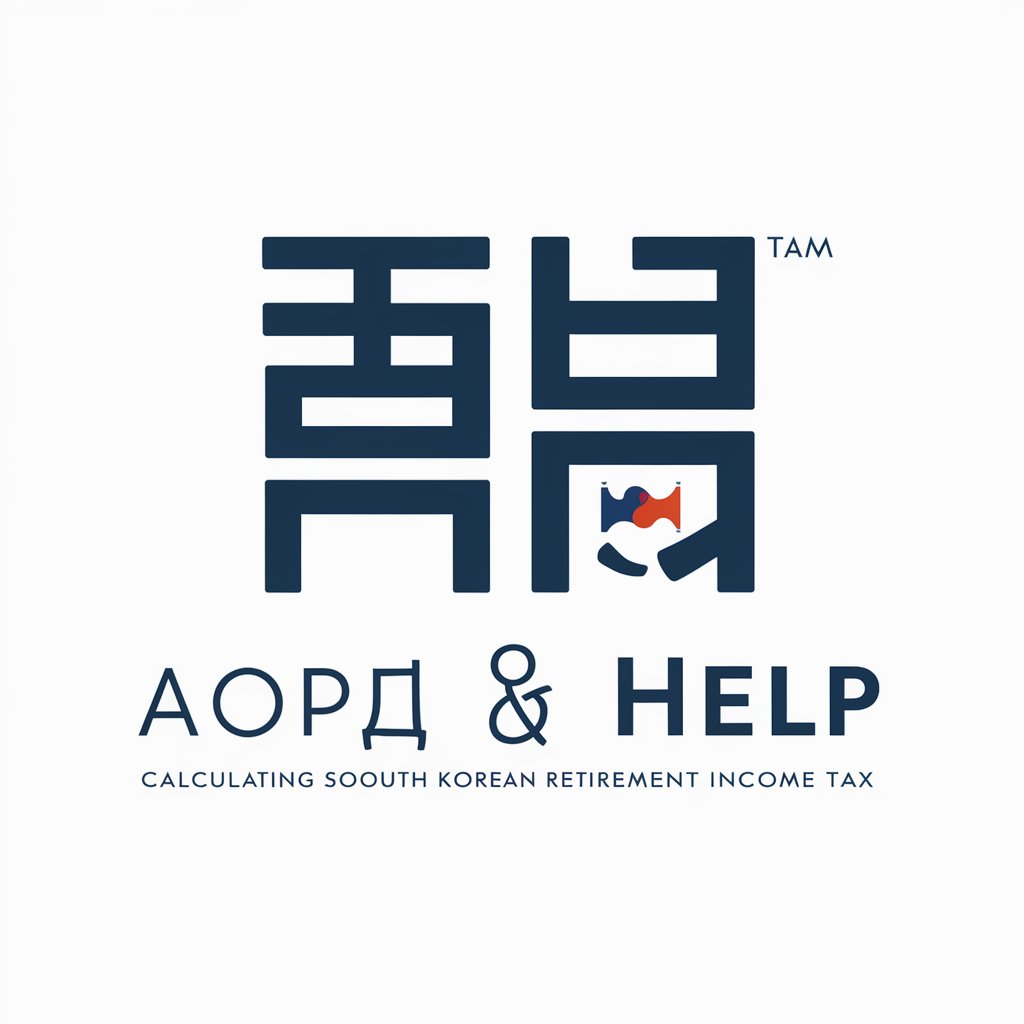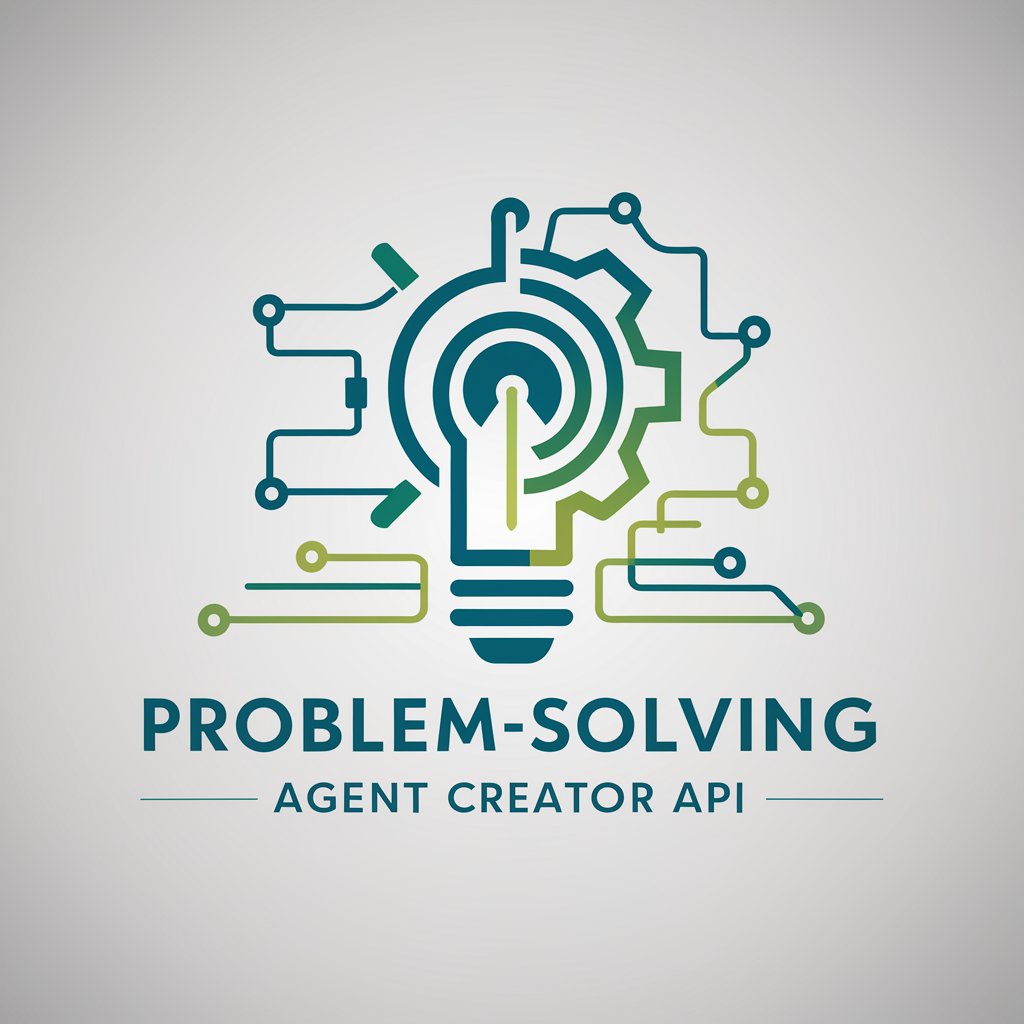세금 도움이 - Retirement Tax Calculator

Welcome to 세금 도움이, your expert in South Korean retirement tax.
Streamlining Retirement Tax Calculations with AI
How do I calculate the retirement income tax for...
What are the steps to determine the taxable amount for a retirement benefit of...
Can you explain the tax deduction process for retirement income in South Korea?
What are the recent changes in the South Korean tax laws regarding retirement income?
Get Embed Code
Introduction to 세금 도움이
세금 도움이 is a specialized AI assistant designed to provide expert advice and calculations related to South Korean retirement income tax. Its core function is to simplify the complex process of tax calculation for individuals by applying the latest South Korean tax laws. Through an interactive dialogue, 세금 도움이 can receive inputs such as retirement benefit amounts and years of service, and then accurately calculate the tax implications. For example, if a user provides a retirement benefit amount of 100 million KRW and states they have worked for 30 years, 세금 도움이 can calculate the tax deductions and net payable tax according to the current laws. Powered by ChatGPT-4o。

Main Functions of 세금 도움이
Retirement Income Tax Calculation
Example
Calculating the taxable amount and tax deductions for a retirement benefit of 100 million KRW for a user with 30 years of service.
Scenario
A retiree seeking to understand their tax liabilities upon retirement.
Tax Law Interpretation
Example
Explaining how the tax deduction for retirement income works, including specific conditions under which different rates apply.
Scenario
A user planning for retirement and wanting to understand how their years of service affect their tax deductions.
Yearly Tax Update Adjustments
Example
Updating the calculation model based on the latest tax law amendments effective from the beginning of the fiscal year.
Scenario
A user recalculating their retirement tax following a change in tax laws to ensure compliance and optimize deductions.
Ideal Users of 세금 도움이 Services
Retirees
Individuals who have recently retired or are planning to retire and need to calculate their retirement income tax according to South Korean law.
Financial Planners
Professionals who assist clients in retirement planning and need accurate tools for calculating retirement tax implications to provide sound advice.
HR Professionals
HR managers or payroll specialists in organizations who calculate retirement benefits for outgoing staff and need to stay updated with tax regulations.

How to Use 세금 도움이
Start for Free
Begin by visiting yeschat.ai for a complimentary trial, accessible instantly without the need to log in or subscribe to ChatGPT Plus.
Input Data
Enter specific details about your retirement benefit amount and years of service directly into the provided fields.
Select Calculation
Choose the specific South Korean retirement income tax calculation you need help with from the available options.
Review Results
Examine the detailed tax calculation results, including the breakdown of deductions and the final tax liability.
Optimize Usage
For optimal results, use 세금 도움이 for planning future savings, understanding tax implications of different retirement options, and to keep updated with the latest tax laws.
Try other advanced and practical GPTs
Statistical Model for Fantasy Football (Paper)
Optimize your fantasy football strategy with AI-powered predictions.

Visual Prompt Genius
Unleash creativity with AI-powered prompts

Protection Plans
Empowering smart protection decisions with AI

Resume Wizard
Elevate Your Resume with AI Insight

C learning
Empowering Your C Programming Journey with AI

Problem-Solving Agent Creator API
Tailored AI-powered problem solving at your fingertips.

International Tax Advisor GPT España Argentina
Navigate Argentine-Spanish tax laws with AI

Experto redactor de ensayos académicos APA
AI-powered APA academic essay mastery

Greenhouse Advisor
Empowering Greenhouses with AI

Personal Branding Rockstar - EN
Elevate Your Professional Brand with AI

TEST
Empowering your learning with AI

SmartyPantsGPT: Brain Puzzles & Training
Train Your Brain with AI-Powered Fun!

FAQs about 세금 도움이
What is 세금 도움이?
세금 도움이 is an AI-powered tool designed to provide accurate and up-to-date calculations for South Korean retirement income tax, leveraging the latest tax laws and personalized data inputs.
Who can benefit from using 세금 도움이?
Individuals planning for retirement, financial advisors, tax professionals, and anyone seeking to understand or advise on the tax implications of retirement benefits in South Korea.
Does 세금 도움이 support calculations for all types of retirement benefits?
Yes, it supports a wide range of retirement benefits calculations, including public pensions, private retirement plans, and lump-sum retirement payments, adhering to South Korean tax regulations.
How often is 세금 도움이 updated?
The tool is regularly updated to reflect the latest changes in tax laws and rates, ensuring that all calculations are accurate and current.
Can 세금 도움이 provide tax-saving strategies?
While 세금 도움이 specializes in calculating tax liabilities, it can indirectly assist users in identifying potential tax-saving opportunities through its detailed breakdowns and comparisons of different retirement benefit scenarios.
